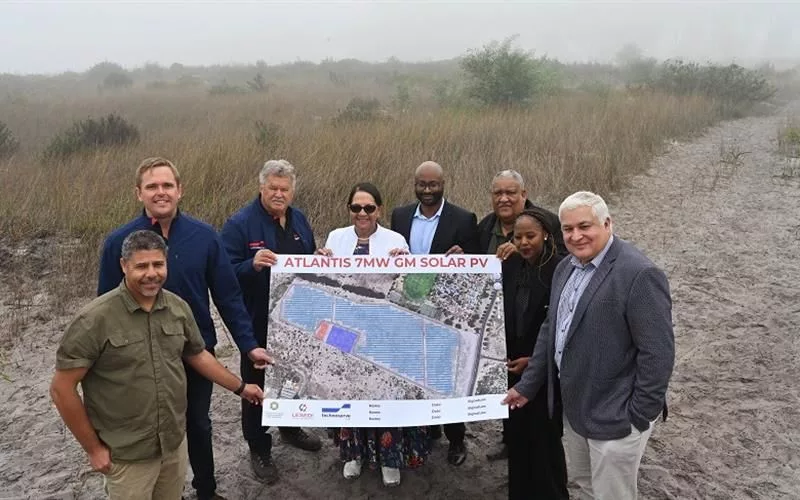Deputy President of South Africa, Shipokosa Paulus Mashatile, delivered a powerful speech at the African United Business Confederation event, emphasizing the importance of responsible leadership and collaboration in driving economic growth. Mashatile highlighted the need for inclusivity, eradicating corruption, prioritizing energy supply and infrastructure development, and addressing skills shortages to prepare future generations of leaders. He urged leaders to endorse policies that uplift marginalized communities and create opportunities for all individuals to engage in the economy, and concluded by emphasizing the collective responsibility to pave the way for a brighter future for all.
Deputy President of South Africa, Shipokosa Paulus Mashatile, emphasized the importance of responsible leadership and multi-sector collaboration in propelling economic growth. He highlighted the need for inclusivity, battling corruption, prioritizing energy supply and infrastructure development, and addressing skills shortages to prepare future generations of leaders. Mashatile urged leaders to endorse policies that uplift marginalized communities and create opportunities for all individuals to engage in the economy.
Building Economic Prosperity Through Collaborative Leadership
Deputy President of South Africa, Shipokosa Paulus Mashatile, provided a compelling discourse at the recent African United Business Confederation (AUBC) event at the Bryanston Country Club, Sandton, Gauteng Province. His speech underscored the crucial role of responsible leadership in propelling economic growth and the significance of multi-sector collaboration.
Mashatile stressed the importance of collaboration among leaders from diverse sectors, including business, politics, government, and civil society. He expressed the view that every role is vital and every sector has a role in fostering job growth and fuelling economic expansion.
The Deputy President reflected on South Africa’s democratic history, honouring the memory of determined leaders who devoted their lives to the fight for freedom. He mentioned remarkable figures such as former President Nelson Mandela, Oliver Tambo, Chris Hani, Helen Joseph, Albertina Sisulu, Winnie Mandela, and Ahmed Kathrada. Despite considerable progress since 1994, he acknowledged that South Africa still needs to strive for economic freedom and an economy that benefits the majority of its people.
Overcoming Socio-Economic Challenges and Championing Inclusion
Mashatile highlighted various socio-economic roadblocks that slow down economic progress, such as high unemployment rates, poverty, inequality, and corruption. Echoing Prof. Somadoda Fikeni’s sentiments, he emphasised that corruption poses the most significant risk to South Africa’s democratic stability.
The Deputy President underscored the necessity of a multi-faceted strategy for battling corruption. He called for the involvement of both public and private sectors to accomplish the objectives set forth in the National Development Plan (NDP).
In alignment with economic reform initiatives, Mashatile expressed the importance of inclusivity. He urged leaders to consciously incorporate women, the youth, and other traditionally marginalized groups into these initiatives, recognizing their significant contribution to society and the economy.
The ANC Government, Mashatile stated, is committed to expanding industries for a comprehensive economy, revitalizing the economy, and investing in individuals and micro-businesses, particularly those owned by formerly marginalized groups. With President Cyril Ramaphosa at the helm, the Red Tape Reduction Team has been formed to facilitate business operations in the country and encourage business growth by tackling bureaucratic obstacles.
Prioritizing Energy Supply and Infrastructure Development
Regarding energy supply, Mashatile commended the Minister of Electricity for his relentless efforts to address power outages and enhance energy availability. Dismissing speculations that recent improvements in power supply were a political strategy, he attributed them to a targeted and methodical Energy Action Plan (EAP).
Mashatile also touched on infrastructure security, highlighting the Cabinet’s adoption of the Infrastructure Investment Plan in May 2020 as a testament to their commitment to infrastructure development. He cited ambitious initiatives across various sectors, including energy, water and sanitation, transport, digital infrastructure, human settlements, and agriculture and agro-processing, which he believes will stimulate the economy and curb unemployment.
He urged the Confederation and its members to take advantage of the Continental Free Trade Area (AfCFTA) agreement, anticipating that this trade revolution will not only foster innovation and promote industrialization but also generate jobs across the continent. He implored leaders to endorse policies that uplift marginalized communities and create opportunities for all individuals to engage in the economy.
Addressing Skills Shortages and Preparing Future Generations of Leaders
In terms of rectifying skills shortages and mismatches, Mashatile, who also chairs the Human Resource Development Council (HRDC), revealed that Social Compacts have been endorsed. These compacts signify the government and social partner’s commitment to addressing skills shortages in key economic sectors and prioritizing digital skills to align with the global demands of the Fourth and Fifth Industrial Revolutions.
In his concluding remarks, Deputy President Mashatile reiterated the collective responsibility in laying the groundwork for future generations of leaders to contribute to the transformation of South Africa’s economy. He espoused the belief that through strategic leadership, South Africa can unleash its potential, foster innovation, and pave the way for a brighter future for all.
What was the focus of Deputy President Mashatile’s speech at the African United Business Confederation event?
Deputy President Mashatile’s speech emphasized the importance of responsible leadership and multi-sector collaboration in driving economic growth. He highlighted the need for inclusivity, eradicating corruption, prioritizing energy supply and infrastructure development, and addressing skills shortages to prepare future generations of leaders.
What roadblocks did Mashatile highlight that slow down economic progress?
Mashatile highlighted various socio-economic roadblocks that slow down economic progress, such as high unemployment rates, poverty, inequality, and corruption. He emphasized that corruption poses the most significant risk to South Africa’s democratic stability.
How does Mashatile suggest battling corruption?
Mashatile suggested a multi-faceted strategy for battling corruption, involving both public and private sectors to accomplish the objectives set forth in the National Development Plan (NDP).
What did Mashatile say about energy supply and infrastructure development?
Regarding energy supply, Mashatile commended the Minister of Electricity for his relentless efforts to address power outages and enhance energy availability. He also touched on infrastructure security and cited ambitious initiatives across various sectors that he believes will stimulate the economy and curb unemployment.
What did Mashatile say about addressing skills shortages?
In terms of rectifying skills shortages, Mashatile revealed that Social Compacts have been endorsed. These signify the government and social partner’s commitment to addressing skills shortages in key economic sectors and prioritizing digital skills to align with the global demands of the Fourth and Fifth Industrial Revolutions.
What was Mashatile’s concluding message?
In his concluding remarks, Deputy President Mashatile reiterated the collective responsibility in laying the groundwork for future generations of leaders to contribute to the transformation of South Africa’s economy. He espoused the belief that through strategic leadership, South Africa can unleash its potential, foster innovation, and pave the way for a brighter future for all.












